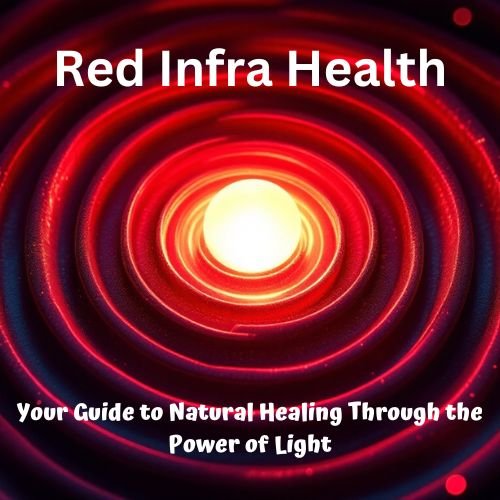Heat therapy stabilizes your heartbeat in five impactful ways. First, it enhances heart rate regulation, mimicking exercise benefits without the strain. Second, it manages blood pressure effectively, helping you maintain stable levels. Third, improved vascular health provides better blood flow and reduced arterial stiffness. Fourth, you'll find stress relief from lowered cortisol levels, which soothes both mind and body. Finally, regular heat exposure cuts down cardiovascular risks, keeping your heart healthier for the long run. Curious about how these benefits work together? There's more to explore that can help you maximize the benefits of heat therapy.
Enhanced Heart Rate Regulation

Heat therapy plays a significant role in enhancing heart rate regulation, particularly during normal conditions. When you experience sauna bathing, your heart rate can increase to about 100-150 beats per minute. This response mimics the effects of low to moderate exercise, driven by your body's need to cool down.
While the heart rate rises, your cardiac output remains stable due to efficient blood flow directed toward the skin. Despite the increased demands, blood circulation to internal organs decreases slightly, as your body adeptly adapts to guarantee adequate blood supply. This ingenious adaptation guarantees that your heart function remains regulated even under heat stress. Furthermore, individuals with impaired thermoregulatory responses may struggle more than healthy individuals in managing heat stress, indicating the importance of awareness in cardiovascular care.
Additionally, heat therapy triggers various hormonal changes, leading to increases in plasma renin, cortisol, and growth hormone levels. These hormones help manage stress and influence heart rate, contributing to stable cardiovascular function.
Engaging in regular sauna sessions can yield long-term benefits by improving your cardiovascular respiratory fitness (CRF) levels, reducing your risk of heart disease and death. Consistent heat therapy can enhance your oxygen consumption, potentially minimizing the risk of heart-related complications.
Blood Pressure Management
When it comes to managing blood pressure, heat therapy stands out as an effective nonpharmacologic option. Research shows that acute heat application can decrease systolic blood pressure by approximately 19 mm Hg, particularly in patients with autonomic failure. By shifting blood to the skin vessels, heat therapy quickly reduces blood pressure levels, with effects that can be noticed almost immediately.
If you're looking for overnight solutions, applying controlled heat at 38°C from 10 PM to 6 AM can lower nighttime systolic blood pressure by around 28 mm Hg. Remarkably, your blood pressure returns to baseline by 8 AM after discontinuation, suggesting that heat therapy effectively manages supine hypertension without medications. Furthermore, supine hypertension is present in about half of individuals with autonomic failure, highlighting the importance of targeted treatments.
You'll also notice improvements in nocturnal diuresis, which can further aid in stabilizing morning orthostatic hypotension.
As you explore heat therapy, keep in mind that it doesn't greatly alter resting heart rate, focusing instead on reducing stroke volume and cardiac output. By considering heat therapy, you're adopting a promising approach to blood pressure management that could also prevent potential end-organ damage linked to overnight increases in blood pressure.
Improved Vascular Health

Managing blood pressure isn't just about controlling levels; it's also about supporting overall vascular health. When you use heat therapy, you improve flow-mediated dilatation by nearly 2%, indicating enhanced endothelial function vital for your vascular health. This improvement suggests better nitric oxide production, facilitating vasodilation and supporting healthy blood flow. Furthermore, heat therapy helps reduce arterial stiffness, which can be a significant risk factor for cardiovascular diseases. By improving the elasticity of your arteries, you enhance blood flow and lessen the strain on your heart. Even during periods of reduced physical activity, regular heat therapy can prevent declines in your arterial health.
Preserving endothelial function is another key benefit. Healthy endothelial function regulates important body processes like blood clotting and vascular relaxation. Heat therapy can counteract declines usually seen with inactivity, potentially lowering your risk of heart attacks and strokes. In individuals with cardiovascular issues, maintaining a healthy vascular function is essential to combat the impact of environmental stressors like heat.
Finally, heat therapy enhances cutaneous microvascular function, essential for blood flow regulation. Improved microvascular function means your body's ability to regulate blood flow is greatly optimized, further reducing your cardiovascular risk.
Stress Relief Benefits
Incorporating heat therapy into your routine can greatly alleviate stress and promote relaxation. Regular heat exposure, such as spending time in a sauna, markedly reduces mental stress by lowering cortisol levels in your blood. You'll likely notice a calming effect as heat application stimulates the release of relaxation chemicals, making it easier for you to unwind after a hectic day.
By using heat therapy, you help decompress your mind, enhancing your resilience to stress. This method not only eases tension but can also improve your overall mental well-being, potentially reducing feelings of anxiety and depression.
When your muscles relax, you'll experience less discomfort and stiffness, which can further reduce stress by allowing you to feel more comfortable in your body.
As you make heat therapy a consistent part of your lifestyle, you'll see how it can integrate seamlessly with other stress-relief practices, such as yoga and breathwork. Together, they create an effective toolkit for managing chronic stress and bolstering your mental health.
Ultimately, heat therapy can provide a soothing escape that benefits both your heart and mind.
Reduced Cardiovascular Risks

Heat therapy serves as a powerful tool for reducing cardiovascular risks, making it an essential addition to your health routine.
When you engage in regular sauna bathing, you'll notice significant reductions in your blood pressure. Research shows that systolic blood pressure can decrease by nearly 4 mmHg, while diastolic pressure can drop by about 4 mmHg as well. These changes are particularly beneficial if you have hypertension.
Moreover, heat therapy enhances vascular function. You'll see improvements in your heart performance and a decrease in arterial stiffness, promoting better blood flow.
Regular sauna sessions can diminish the risk of sudden cardiac death, coronary heart disease, and stroke by 28% and 26%, respectively.
Combining sauna bathing with high levels of cardiorespiratory fitness further decreases adverse cardiovascular outcomes. As your heart rate rises during a sauna session—similar to low to moderate exercise—you'll experience increased cardiac output and improved overall exercise capacity.
Incorporating heat therapy into your routine isn't just relaxing; it actively stabilizes your heart health and reduces your cardiovascular risks.
Frequently Asked Questions
How Often Should I Use Heat Therapy for Heart Health?
You should aim for heat therapy sessions 2-3 times a week for ideal heart health. Consistency is key, so find a routine that works for you and prioritize your cardiovascular well-being through regular use.
Can Heat Therapy Help With Arrhythmia Management?
Heat therapy isn't effective for managing arrhythmias. It can increase heart rate and worsen symptoms, especially if you have a cardiovascular condition. It's best to explore established treatments for effective arrhythmia management.
Is Heat Therapy Safe for Pregnant Individuals?
Yes, heat therapy can be safe during pregnancy when used correctly. Keep sessions short, avoid high temperatures, and steer clear of the abdomen if you're at risk. Always consult your healthcare provider for personalized advice.
What Is the Ideal Temperature for Sauna Sessions?
The ideal temperature for sauna sessions typically ranges from 155-195°F for traditional saunas, while infrared saunas prefer 120-140°F. You should choose a temperature that aligns with your individual comfort and health needs.
Can Heat Therapy Improve Recovery After Heart Surgery?
Yes, heat therapy can improve your recovery after heart surgery. It reduces pain, increases blood flow, promotes healing, and supports your rehabilitation efforts, making it an effective addition to your post-surgery care plan.
In Summary
Incorporating heat therapy into your routine can greatly benefit your heart health. By enhancing heart rate regulation and managing blood pressure, you'll create a more stable cardiovascular environment. The improved vascular health and stress relief you'll experience can lead to lower cardiovascular risks overall. So, give heat therapy a try and feel the positive changes in your heart and well-being. Your heart deserves this extra care!





Leave a Reply